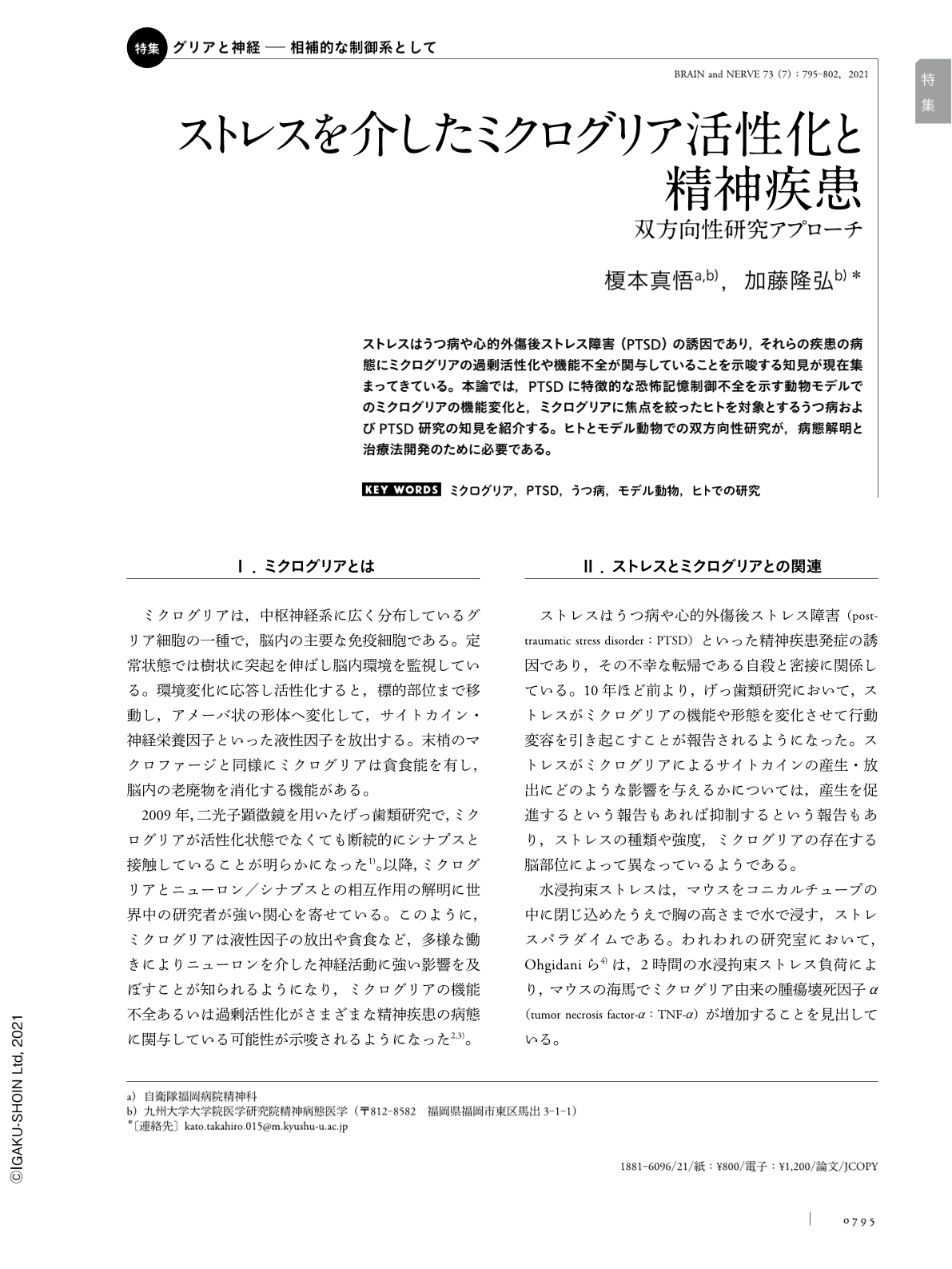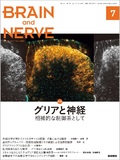Japanese
English
- 有料閲覧
- Abstract 文献概要
- 1ページ目 Look Inside
- 参考文献 Reference
ストレスはうつ病や心的外傷後ストレス障害(PTSD)の誘因であり,それらの疾患の病態にミクログリアの過剰活性化や機能不全が関与していることを示唆する知見が現在集まってきている。本論では,PTSDに特徴的な恐怖記憶制御不全を示す動物モデルでのミクログリアの機能変化と,ミクログリアに焦点を絞ったヒトを対象とするうつ病およびPTSD研究の知見を紹介する。ヒトとモデル動物での双方向性研究が,病態解明と治療法開発のために必要である。
Abstract
Stress is a trigger for depression and PTSD, with current studies suggesting the involvement of microglial hyperactivation and dysfunction in the pathophysiology of these diseases. In this review, we introduced microglial functional changes in animal models, which exhibit fear memory dysregulation that is characteristic of PTSD, and human microglia-focused clinical studies on depression and PTSD. Stress has been found to affect cytokine and neurotrophic factor releases from the microglia, promoting microglia-mediated synaptic phagocytosis. In particular, animal models of PTSD have indicated that abnormal microglial cytokine production engage in decontextualized fear memory, fear extinction deficit, and fear generalization, and impaired microglial phagocytosis may also participate in fear generalization and fear forgetting. It is not possible to evaluate higher mental dysfunction in stress-related psychiatric disorders using model animals alone. PET studies with TSPO ligands, for one, suggest that inflammatory microglial changes are enhanced in depressed patients, whereas these changes are suppressed in PTSD patients. Thus, we conducted a reverse-translational research to explore the involvement of microglia in depression using human peripheral blood. We believe that interactive research in humans and animals is needed to elucidate the pathophysiology of stress-related psychiatric disorders for the development of treatment options for such patients.

Copyright © 2021, Igaku-Shoin Ltd. All rights reserved.


